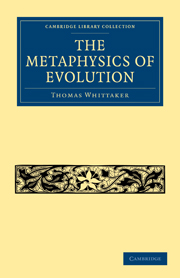GIORDANO BRUNO AND HIS TIME
Published online by Cambridge University Press: 07 September 2010
Summary
Even more now than when it was first published, forty years since, Prof. Carrière's classical work on the philosophical ideas of the Renaissance or “Reformation-time” appeals to the need that is felt for the kind of renewal which he has himself described, by a phrase adapted from Machiavelli, as a “bringing back of philosophy towards its origin.” Along with the increasing specialisation of the nineteenth century there has been a rising desire, as Prof. Carrière shows, to attain again that largeness of outlook which has characterised the beginning of each intellectual epoch and which specialisation by itself tends to destroy. The philosophical ideas that within the properly modern period have been developed in different and sometimes conflicting directions, are all present, he contends, “in germinal totality,” in the philosophy of the transitional period from the middle of the fifteenth to the middle of the seventeenth century. In Giordano Bruno, the supreme philosophical expression of that period, we may rediscover a view of the world as a whole which was lost in the dispersion of thought during the seventeenth and eighteenth centuries, but which could not have been fully understood till the various elements combined in its original unity had been worked out in their separateness. The systems of Spinoza, of Leibniz and of Hegel are all developments of that which is contained implicitly in Bruno.
- Type
- Chapter
- Information
- The Metaphysics of Evolution , pp. 114 - 127Publisher: Cambridge University PressPrint publication year: 2009First published in: 1928



